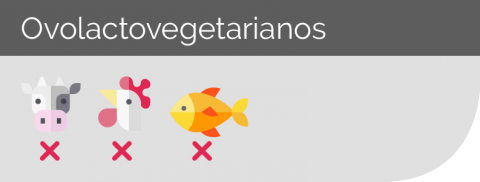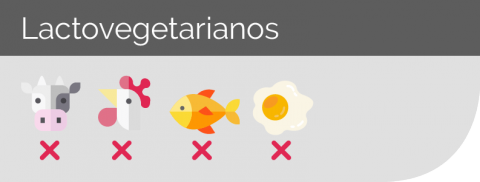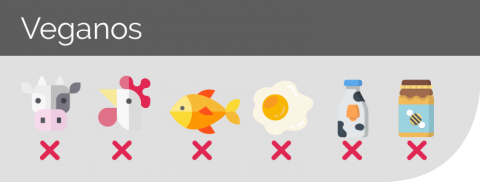Veganism and food ethics
Veganism
by Roberto Naime
[EcoDebate] Veganism has always stressed the need for a healthy diet that also respects animals. It emphasizes the importance of preserving the soil and the correct use of land, so that future generations do not find it with erosion and burning, without the minerals necessary for a healthy life.
Vegans rely on natural methods of pure food, fresh air, sun and exercise. Instead of vaccines and medications to keep body and mind healthy. Which may seem like a radicalization without scientific basis.
The use of pesticides and chemical fertilizers is opposed to the principles of veganism and the guidelines of vegan agriculture that proves that they are unnecessary when the correct soil balance is established. There is no doubt about this. Fruits and vegetables grown with vegan methods can be as large and beautiful as those grown under any other method.
In the vegan view, contamination of water with sewage, industrial waste or fluoride addition is contrary to the interests of the community.
Because of their faith in “Ahimsa”, which in Sanskrit means not to kill, not to hurt and mobilize harmless energy, vegans tend to pacifism and oppose all kinds of aggressive activity. Veganism is a lifestyle concerned with living without hurting others.
There are several paths to veganism and many theories about it, but veganism is only one thing a way of life that avoids exploitation, be it human, animal or the soil on which it depends for existence. Some are initially attracted to veganism because they want to improve or regain their health, others are more interested in the economic aspect, which is of great importance to everyone.
Few non-vegetarian individuals evaluate the fact that much more plant foods than animal foods can be produced in an equal area and in the same time space generally adopted.
Veganism could rid humans of animal husbandry with all its cruelty and many fertile lands would be released for widespread production of food destined directly for human consumption. But as already mentioned in other opportunities, hunger is much more a matter of income distribution than food availability.
The largest number of vegans, are motivated by compassion to adopt this way of life. Don’t hurt. Most were raised eating plenty of meat, eggs, milk and fish, but feeling that this was perhaps not the best way to live.
Many are questioned because such radicality is mobilized, which in the case of vaccines is totally questionable. But the movement to date has not formulated demonstrations that lead to satisfactory sylogism.
Unlike vegans, large numbers of vegetarians are mainly concerned about health and accept the slaughter of animals in the production of meat, leather and cheese. It does not matter to the innocent animal, whether it occurs to be slaughtered to provide food, medicine, clothing, sport or luxury objects such as ivory ornaments, alligator skin bags or an exotic perfume.
Most people, when starting a lacto-vegetarian diet, increase their consumption of dairy and eggs.
Products such as biscuits, cakes, ready-made pasta, pastries, puddings, canned soups and others are considered suspicious. They probably contain butter, milk, honey, cheese, animal fats or eggs.
Under the nutritional dimension are inferior to fresh foods, because they were overcooked or processed in some way and because they probably contain some of the 800 additives used in food, such as dyes, sweeteners, stabilizers, preservatives, flavorings and others.
Mobilize a good homemade soup, with vegetables cooked in a traditional way, wholegrain bread or baked potatoes with peel, will add variety to green salads, fresh fruits, nuts and grains. These easily germinated with excellent results and are the basis of good vegan food.
But veganism isn’t just about eating. Vegans deplore the abatement or exploitation of any animal, whatever the reason. There is vehement condemnation of the use of meat of any kind for food, with the sacrifice of any animals.
Clothing using animal fabrics or organs, not even ornaments, is not worn. Cosmetics made from animal constituents are also not used and household products with these substances are not used. Sports such as fishing or involving animals are not practiced, and in no way are circuses and other forms of entertainment involving animals.
Vaccines, sera and others, produced using animals, are not used. Not forgetting that many species are used in experiments to test all kinds of medicines and cosmetics.
In addition to the immediate effects, vegans consider this lifestyle a duty for future generations. It will take a long time, at the current pace of progress, to undo what they consider to result from past mistakes.
Whatever the actions, it will be the heirs of the planet, who will reap the good or bad results of what is realized.
As one denotes there is a noble and well-founded framework of support for veganism. But there are also great questions and very obscure logical aspects in all appropriation. How not to submit to the use of vaccines.
Reference:
http://www.taps.org.br/Paginas/vegetartigo07.html
Dr. Roberto Naime, Columnist of EcoDebate Portal, holds a PhD in Environmental Geology. Member of the Faculty of the Master and Doctorate in Environmental Quality of Feevale University.
Note: On the same topic, we suggest you also read:
Food Nutraceuticals, article by Roberto Naime
Functional Foods, article by Roberto Naime
Alimentação Alternativa, article by Roberto Naime
Vegetarianism, article by Roberto Naime
See below the characteristics of diets, in information from EBC:
The vegetarian diet exists in several ways, check below:
Do not ingest any type of meat (no chicken, fish or seafood), but consume dairy products and eggs. This type of vegetarianism is the most common.
In addition to not ingesting any type of meat – such as ovolactovegetarians – lactovegetarians exclude eggs from the diet. It is the predominant type of vegetarianism in countries like India, according to the SVB.
Do not ingest any kind of meat, dairy products or eggs.
Created in 1944, in England, by Donald Watson, the vegan or vegan movement is gaining more and more space in Brazilian society. For ethical reasons, vegans do not consume anything of animal origin in any area of their lives. Food, clothing, shows or any other type of activity involving animal suffering is excluded from the life of a vegan person. Veganism is a political stance, not a diet. In Brazil, the Brazilian Vegetarian Society (SVB) is the entity responsible for the certification of vegan products. The seal is delivered after rigorous analysis of the production chain.
in EcoDebate, ISSN 2446-9394, 15/09/2020
[CC BY-NC-SA 3.0] [ EcoDebate content may be copied, reproduced and/or distributed, provided that credit is given to the author, EcoDebate and, if applicable, to the primary source of the information]
Inclusion in the distribution list of the Daily Bulletin of the electronic magazine EcoDebate, ISSN 2446-9394,
If you would like to be included in the distribution list of our daily newsletter, simply send an email to newsletter_ecodebate+subscribe@googlegroups.com. Your email will be included and you will receive a message asking you to confirm your registration.
EcoDebate does not practice SPAM and the requirement to confirm the source email is intended to prevent your email from being improperly included by third parties.
Removal of the distribution list of the Daily Bulletin of the electronic magazine EcoDebate
To unsubscribe from this group, please email us newsletter_ecodebate+unsubscribe@googlegroups.com or ecodebate@ecodebate.com.br. Your email will be removed and you will receive a message confirming the removal. Note that removal is automatic but not instant.



